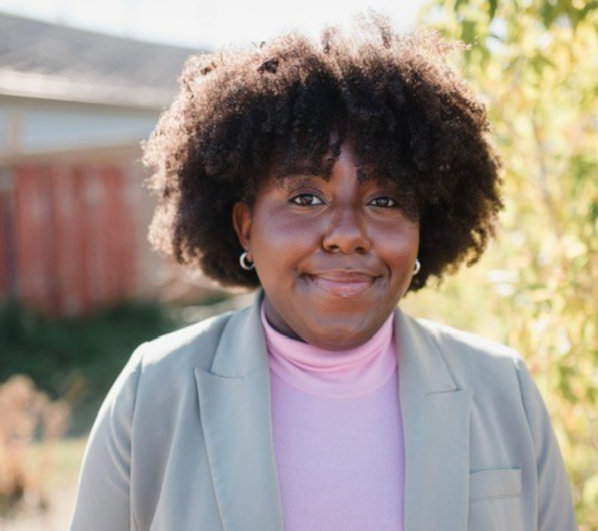
Delilah Kamuhanda
Delilah is turning awareness of racism into anti-racism action and is the co-founder of Black Lives Matter YXE.
Delilah Kamuhanda is a Ugandan American activist, writer and educator who grew up near Washington, D.C. and moved to Canada for school. She was intrigued by the University of Saskatchewan’s Health Studies BASc, which lets students earn a science and an arts degree in health. Delilah’s studies combined the science of disease and the sociology of health.
“I was already enrolled in a microbiology program, but I wanted to also study the sociological aspects of health, the politics and history,” Delilah says. “That’s when I found the Health Studies program. It let me pick a science and an arts stream, and tailor that to my interests.”
One of Delilah’s interests is the social side of health and disease, particularly as it impacts BIPOC communities. “There is a history of medical racism, of secrecy and medical experimentation that is relevant when you look at vaccine hesitancy and health inequalities in BIPOC communities today,” Delilah says. “I think the situation with COVID gives us an opportunity to understand that hesitancy and to have open conversations about validating the source of those fears, while also offering accessible education on the well researched science and the community health practices we need right now.”
Since graduating from USask, Delilah has worked as the sexual health coordinator at Saskatoon Sexual Health and OUT Saskatoon. As the co-founder of Black Lives Matter YXE, she is actively engaged in anti-racism activities and events.
“I want Black people in our community to feel affirmed. I had to struggle to get where I am; I don’t want young people to have to struggle the way I did, especially in school settings. I want to use my experiences with racism to help them navigate changes in society,” Delilah says.
When she first moved to Saskatoon in 2014, Delilah says most people were unaware of Black Canadian history; teachers told her that it wasn’t “a thing” in Canada. In fact, it’s been a thing since 1995 when the House of Commons officially declared February as Black History Month.
“In the last two years, I think we’re seeing more progress and more conversations around diversifying education and better understanding of racism and antiracism,” Delilah says. “Now, the next step is to activate that, to turn that understanding into tangible, long-term actions—both the everyday things people do in their lives and in larger systemic systems like education, health and justice.”

